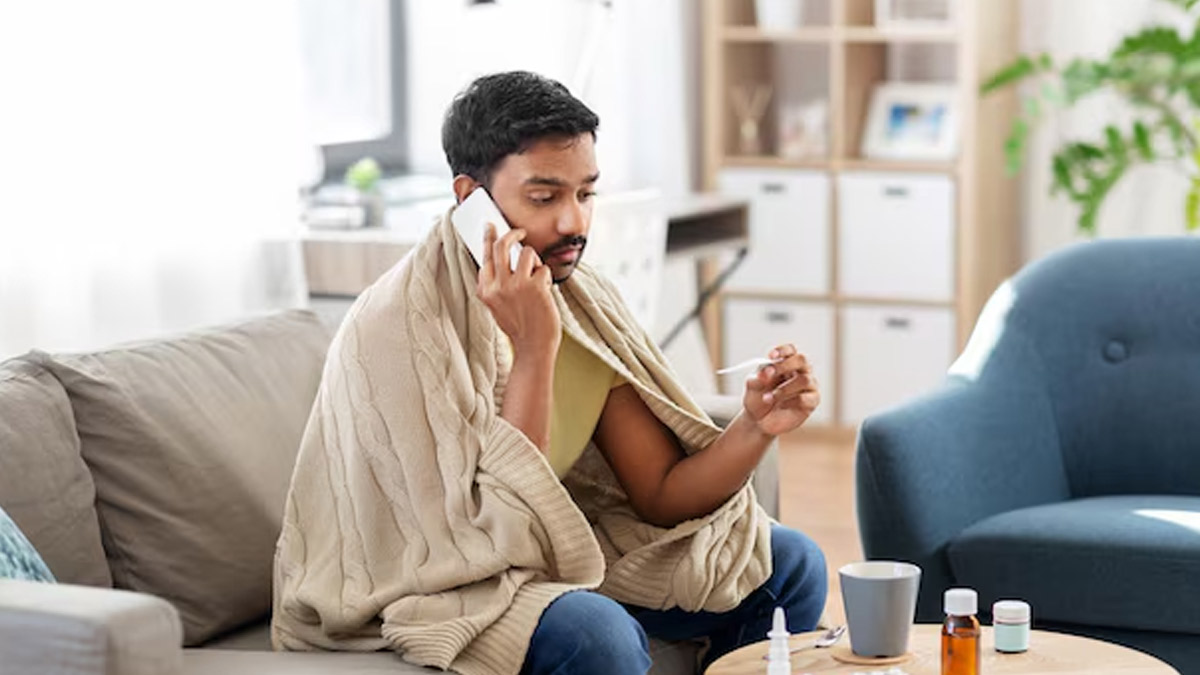-1758009191645.webp)
Many people look forward to weekends or vacations as a time to relax – only to end up feeling under the weather as soon as the break begins. This frustrating experience, often called 'leisure sickness' or the 'weekend flu', is more common than you might think and can leave you feeling achy, tired, or even mildly feverish just when you finally have time to rest.
Table of Content:-
Health experts say this isn’t a coincidence. The sudden shift from a busy, high-stress work routine to downtime can set off a cascade of physical changes, including hormone fluctuations and immune system responses. Understanding why this happens and how to prevent it can help you reclaim your weekends and holidays so you can truly relax and recharge.
Also Read: Managing Post-Illness Fatigue And Recovery During Monsoon Fevers And Flu
What Triggers 'Weekend Sickness'?

According to Dr Gorav Gupta, CEO and Senior Psychiatrist, Tulasi Healthcare, Gurugram, the body’s stress response plays a major role. “During busy periods, stress hormones like cortisol and adrenaline keep the body on high alert, temporarily suppressing inflammation and keeping energy levels up,” he explains.
When work stops and stress levels drop, the immune system returns to normal, allowing underlying fatigue or mild infections to surface. “It’s not that you’re catching something new on your off days—it’s that your body is revealing what was already brewing,” says Dr Gupta.
Dr Naveen Kumar Dhagudu, Senior Consultant Psychiatrist, Yashoda Hospitals, Hyderabad, refers to this as the “Let-Down Effect”. “During stressful periods, the body releases hormones that keep the immune system on high alert. But once the stress eases, immunity drops, leaving the body more vulnerable,” he notes. Residual chemicals like prostaglandins can also spark inflammation, triggering migraines or joint pain.
The Link Between Stress And Leisure Sickness
Stress is at the heart of this condition. “Transition from work to leisure can be difficult for some. Potential increased feelings of stress, dullness, and even mild depression can occur,” says Dr Dhagudu.
During hectic workdays, adrenaline keeps the immune system ready for action. But when you suddenly relax, adrenaline drops while cortisol levels rise. “This sudden shift can weaken immunity, making you more prone to headaches, nausea, or even mood changes like anxiety or irritability,” he explains.
How Sleep Disruptions Add To The Problem

Changes in sleep patterns—like sleeping in on weekends—can also leave you feeling sick. “Sleeping much later or longer disrupts the circadian rhythm, which affects immune function, hormone balance, and gut health,” says Dr Gupta.
Dr Dhagudu adds that even small changes can have an impact: “Even a 90-minute shift in sleep patterns can disturb the body clock. These shifts are linked to changes in gut bacteria, which may influence weight, heart health, and diabetes risk.”
Also Read: Monsoon Health & Hygiene Tips for Toddlers: A Doctor's Guide
Does This Mean Your Immune System Is Weak?
Both experts stress that leisure sickness does not necessarily indicate a permanently weakened immune system. “In most cases, it’s more about immune fluctuation and hormonal changes than chronic immune weakness,” says Dr Gupta.
However, Dr Dhagudu warns that poor sleep over time can compromise immunity. “People who don’t get enough quality sleep are more likely to fall sick when exposed to viruses and may also take longer to recover,” he explains. Chronic sleep deprivation raises the risk of serious conditions such as high blood pressure, diabetes, and depression.
Tips To Stay Healthy During Breaks

Preventing leisure sickness is possible with a few mindful habits:
- Maintain a steady sleep schedule. Try to go to bed and wake up at roughly the same time every day.
- Ease into relaxation. “Shifting gradually from a rushed routine to a relaxed one helps your body adjust,” advises Dr Dhagudu.
- Prioritise healthy habits. Eat a balanced diet, stay hydrated, and get regular exercise.
- Manage stress. Practise mindfulness, deep breathing, or light activities to help your body transition smoothly.
Seek medical advice if needed. If you repeatedly fall ill on weekends or holidays, consult a doctor to rule out underlying conditions.
Conclusion
Leisure sickness is your body’s way of signalling that it needs balance. By keeping your sleep consistent, managing stress, and maintaining healthy routines, you can enjoy your downtime without the unwelcome side effect of feeling sick.
How we keep this article up to date:
We work with experts and keep a close eye on the latest in health and wellness. Whenever there is a new research or helpful information, we update our articles with accurate and useful advice.
Current Version
Oct 03, 2025 21:10 IST
Published By : Tenzin Chodon
